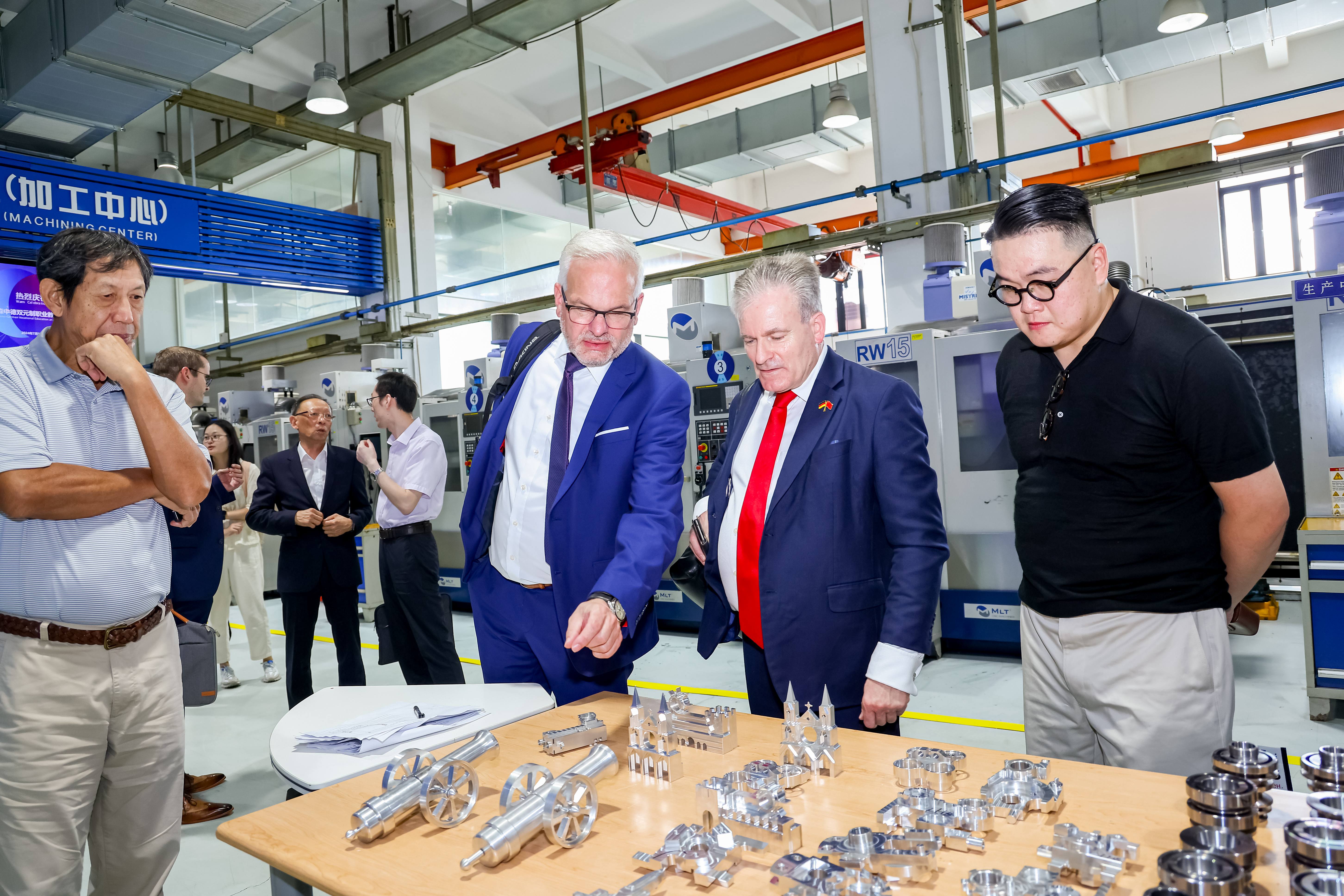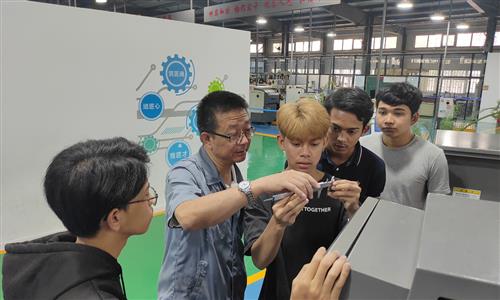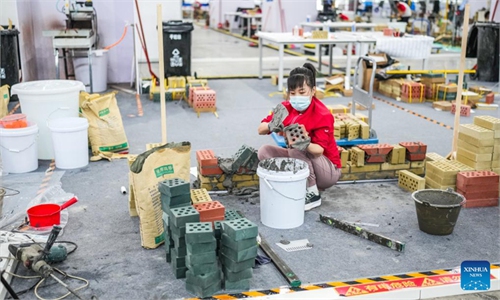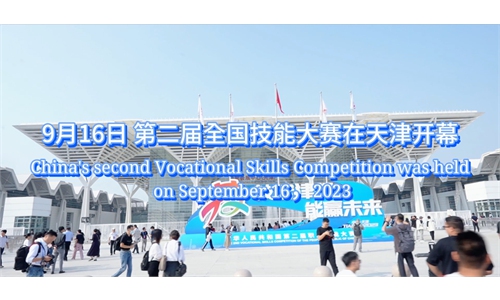IHK Chinese-German dual vocational base established in Shanghai to cultivate skilled talents

Representatives from companies and schools from China and Germany visit the training center of Shanghai Industrial Technology School on July 16, 2024. Photo: Courtesy of the organizer
The Shanghai IHK Giessen-Friedberg Sino-German Dual Vocational Education Training Center was officially established at the Shanghai Industrial Technology School on Tuesday, marking the first time that an IHK dual-system vocational base of this kind has been established in the city, aiming to cultivate high-quality skilled talents with an unique international perspective.
The base will provide talent training programs and curriculum services for three majors including mechatronics, industrial machinery, and mold machinery. It will focus on building teaching resources in the dual system, and promoting international collaboration between industry and education.
“The education and training models for different majors are different. Currently our school focuses on the three majors as part of this project. It’s possible that other schools can choose other sectors such as bakery or automobile processing in the future cooperation,” Li Qiming, secretary of the CPC Shanghai Industrial Technology School committee, told the Global Times on Tuesday.
The employment scope is relatively wide, and vocational education in Germany is very detailed as well, Li said. Our school prioritizes industry-aligned education and practical training to prepare students for seamless entry into the workforce, ensuring students are ready for employment without the need for additional training, Li noted.
Vocational education in China is gaining prominence as the economy develops and industrial structure upgrades, with a focus on being new and practical outcomes to meet the demands of high-quality development and new productive forces.
The dual system vocational education model in Germany, led by organizations like IHK, combines theoretical learning in vocational schools with practical training in companies. Integrating education and industry enhances students’ competitiveness in the job market.
Matthias Leder, CEO, IHK Giessen-Friedberg, told the Global Times on Tuesday that after several years’ contacts and observations with Chinese friends, he found that Chinese are willing to learn, and they are fantastic at mathematics and natural sciences. People from both sides will have great benefits from the exchange and can learn from each other including knowledge related to culture and technical skills, said Leder.
In 2023, there were over 6,500 vocational schools offering about 52,000 manufacturing-related programs nationwide, showing growth from the previous year. The emphasis is on advanced, intelligent, and green manufacturing, with a focus on expanding programs in advanced manufacturing areas like high-speed rail communication technology, according to China’s Ministry of Education.
Yang Zhenfeng, deputy director of the Shanghai Municipal Education Commission and representatives from companies and schools from China and Germany attended the opening ceremony held in Shanghai.



